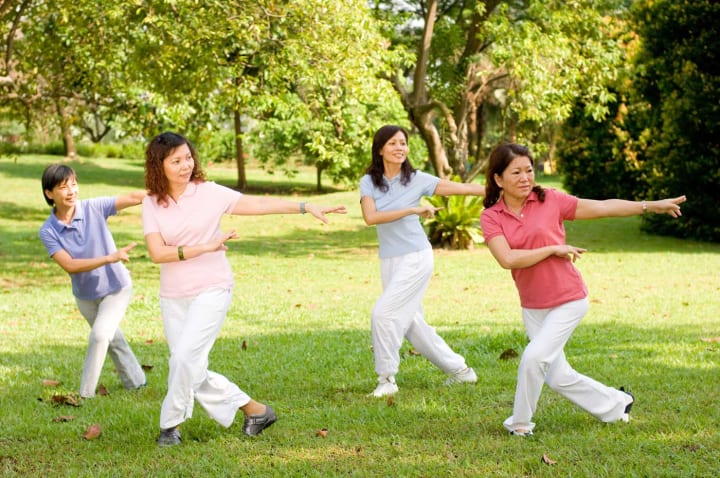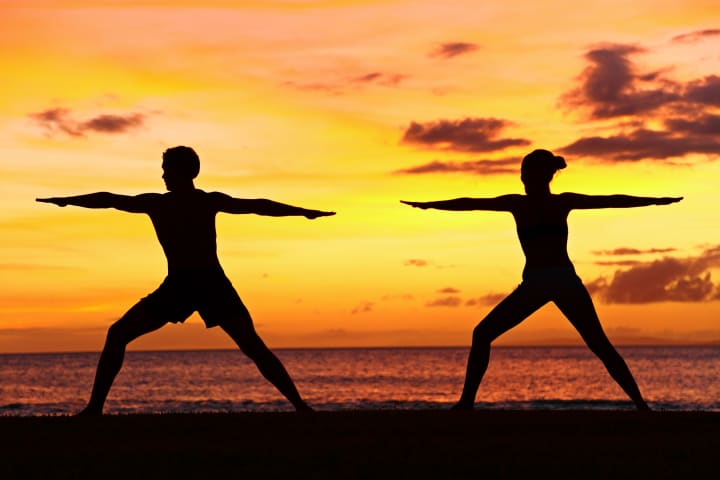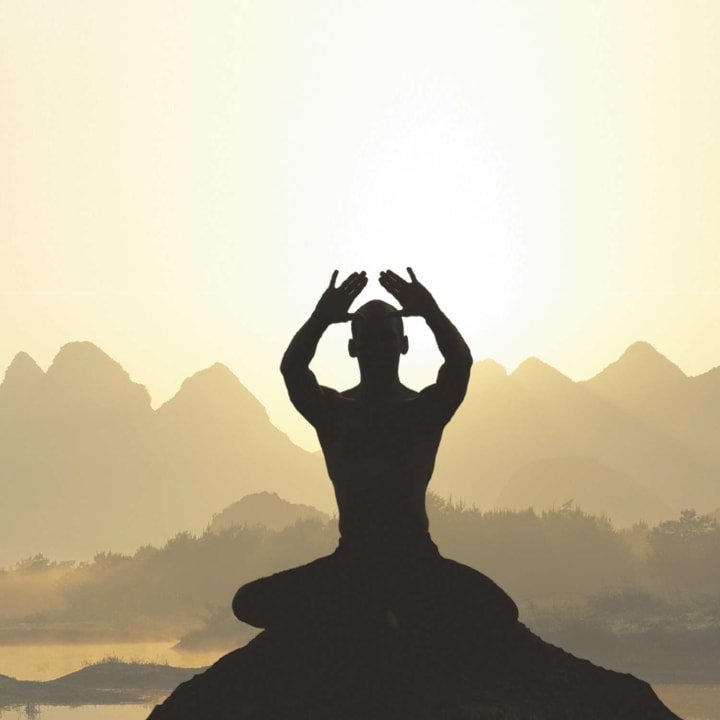Why Tai Chi? The Best Reasons to Begin
Those totally chill people at the park? Yeah, you could be one of them.

Imagine yourself standing on on the bank of a calmly flowing river, your mind clear, your body moving with grace and purpose through the space around you. Feel more relaxed already? If you’ve never tried the ancient practice of tai chi, maybe it’s time to begin. Some call it “meditation in motion”, while the Harvard Women’s Health Watch calls it “medication in motion,” but whatever your spiritual and physical state, chances are the low-impact, slow motion exercises of tai chi can improve them. It’s not just for your grandma, either; many young people enjoy the way that tai chi helps them slow down their frantic pace long enough to be mindful of the beauty around them. Here are some of the best reasons to try this ancient practice and find greater peace each day.
Tai chi helps to strengthen your muscles.

In case you’re still skeptical about that “tai chi isn’t just for your grandma” thing, consider this: the phrase “t’ai chi ch’uan” is translated as “supreme ultimate fist” or “boundless fist.” (That would be a sweet superhero name, definitely better than “Ant-Man”...Marvel, take note.) That’ll aptly describe you when you’ve strengthened your muscles by practicing tai chi. Although you may not be lifting giant dumbbells, the unsupported arm movements you’ll do while practicing tai chi forms lets you strengthen both your upper and lower body as well as your core. And it really doesn’t matter whether you’re already in excellent shape or recovering from surgery. One of the best things about tai chi is that you begin where you are and go from there, whether there is professional surfer or merely professional Netflix surfer.
Practicing tai chi improves your flexibility and balance.

When you’re flexible, your joints and muscles can work together to help you do the things you love without pain. If you’re still young, this may not be a problem for you yet - but you don’t ever want it to become one. Without twisting yourself into a yoga-shaped pretzel (no offense if that’s your thing, but not everyone can do it), you can enjoy the easy motions of a tai chi warm up, then follow it up with the practice of tai chi forms - sets of movements - that may be smaller or larger depending on the style of tai chi you practice. Long forms include as many as hundreds of movements, while shorter forms may comprise just a dozen. While you’re stretching your muscles, you’ll also be improving your balance. Tai chi helps you gain a better ability to sense the position of where your body is in a space, which means you’re less likely to trip, fall, and generally crash about like a rhino (not that I would know anything about that personally).
Tai chi can reduce your stress and improve your mood.

One big way that tai chi helps to reduce your stress is by bringing you back to the present moment. An element of tai chi called qigong (or chi kung) meaning “breath work” or “energy work” is made up of a little movement in combination with a few minutes of gentle breathing. You’ll relax your mind, and you can do it lying down, sitting, or standing, whichever you prefer. As you’re moving through tai chi forms, breathing naturally and deeply, your attention will be completely focused on the sensations of your body, away from the too-often frantic humming of your mind. Zhang Sanfeng, a 12-century Taoist monk who is widely considered the creator of tai chi, thought of his practice as a form of fighting based on softness. Instead of clenching your jaw, tensing your muscles, and trying to power through a stressful day, consider the benefits of gentle tai chi practice to make everything seem a little less crazy. Some studies also suggest that tai chi can be helpful in treating symptoms of depression. And why wouldn’t tai chi improve your mood? When your body feels well, when you’re feeling at peace, you’re so much less likely to snap at your co-workers and skip a walk with your dog. Let the good feelings wash over you and take you away from the teeth-gritting daily grind to a better place (in my better place, I’m eating delicious, delicious Chinese food).
Tai chi can be done anywhere, anytime, alone or with a group.

So, you’ve got options. Always a good thing. If classes motivate you to get off the couch and do something, try that - there are probably lots of options around town, whether at the YMCA, a community education center, or even your gym. Get a friend to go with you if you’re under 50 and worried about being the only one in the class, or brave it and take the awesome risk that you’ll learn something from your elders. Since there’s no standard training or licensing for instructors, ask for recommendations or observe a class before you thrown down the dinero. On the other hand, if you feel wildly uncomfortable moving your body in front of strangers more than you absolutely have to (you’re not alone there, let me tell you), there are plenty of great videos you can borrow, rent, or buy on DVD.
Practicing tai chi can help you develop greater spirituality.

Tai chi isn’t a religion. However, as you develop a greater awareness of your body, you’ll also develop a greater awareness of the universe around you. You know that feeling of looking up in awe at the stars? You suddenly realize how tiny your problems are, how you’re a tiny piece of the universe; maybe you remember that we’re all made of stardust, and you’re connected, instantly, with everyone and everything around you, for just a brief moment. As you practice tai chi, you’ll feel closer to nature, to the plants and animals and people around you. No matter your religion, that’s a deeply spiritual thing that’s hard to describe but so transcendent to experience. If you keep struggling not to play the same old negative messages in your head on repeat (you know the ones), tai chi can help you let go of the unimportant stuff and feel peace flowing into every part of your life. And that’s definitely worth the effort.
About the Creator
Sarah Quinn
I'm a writer in love with India, Stars Wars, fantasy, travel, and Thai curries. My childhood heroes were Luke Skywalker and Joan of Arc. I muse on superheroes, sci-fi, feminism, and more.






Comments
There are no comments for this story
Be the first to respond and start the conversation.